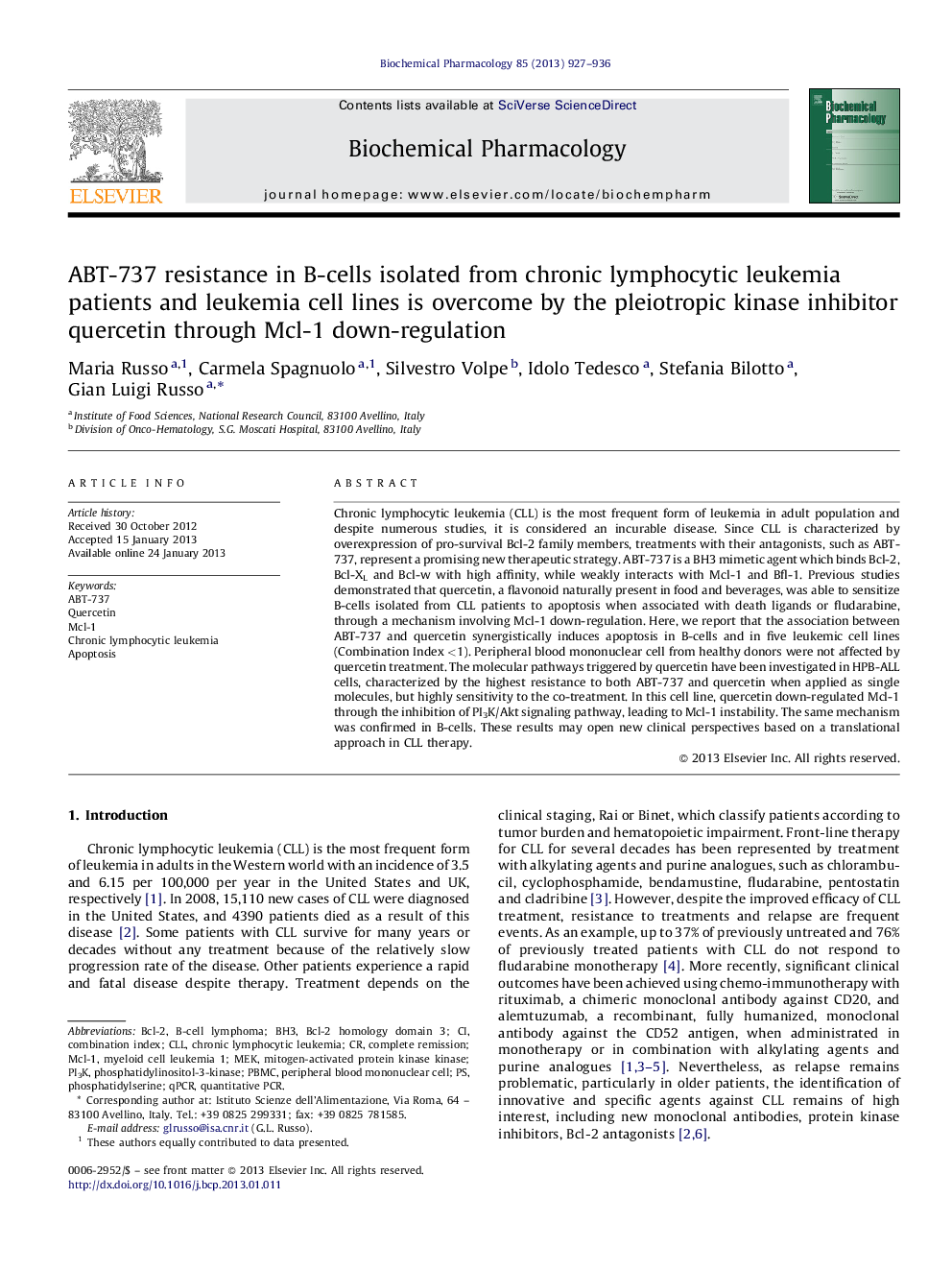| Article ID | Journal | Published Year | Pages | File Type |
|---|---|---|---|---|
| 2512889 | Biochemical Pharmacology | 2013 | 10 Pages |
Chronic lymphocytic leukemia (CLL) is the most frequent form of leukemia in adult population and despite numerous studies, it is considered an incurable disease. Since CLL is characterized by overexpression of pro-survival Bcl-2 family members, treatments with their antagonists, such as ABT-737, represent a promising new therapeutic strategy. ABT-737 is a BH3 mimetic agent which binds Bcl-2, Bcl-XL and Bcl-w with high affinity, while weakly interacts with Mcl-1 and Bfl-1. Previous studies demonstrated that quercetin, a flavonoid naturally present in food and beverages, was able to sensitize B-cells isolated from CLL patients to apoptosis when associated with death ligands or fludarabine, through a mechanism involving Mcl-1 down-regulation. Here, we report that the association between ABT-737 and quercetin synergistically induces apoptosis in B-cells and in five leukemic cell lines (Combination Index <1). Peripheral blood mononuclear cell from healthy donors were not affected by quercetin treatment. The molecular pathways triggered by quercetin have been investigated in HPB-ALL cells, characterized by the highest resistance to both ABT-737 and quercetin when applied as single molecules, but highly sensitivity to the co-treatment. In this cell line, quercetin down-regulated Mcl-1 through the inhibition of PI3K/Akt signaling pathway, leading to Mcl-1 instability. The same mechanism was confirmed in B-cells. These results may open new clinical perspectives based on a translational approach in CLL therapy.
Graphical abstractFigure optionsDownload full-size imageDownload as PowerPoint slide
